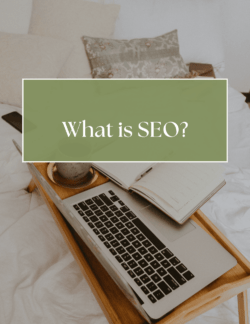What is SEO: Comprehensive Guide to Optimize Your Website
In today’s digital age, having a strong online presence is crucial for any business or individual. But how do you ensure that your website stands out among the multitude of sites on the internet? The answer lies in SEO, or Search Engine Optimization. Whether you’re new to the concept or looking to refine your skills, this blog will explain what is SEO, its importance, and how to effectively optimize your website using both on-page and off-page strategies.

What is SEO?
Search Engine Optimization (SEO) involves strategies and practices aimed at increasing your website’s visibility on search engine results pages (SERPs). When someone searches for a keyword related to your business, you want your site to be among the top results, as higher rankings lead to more organic (unpaid) traffic.
But achieving a high ranking isn’t straightforward; it requires a combination of on-page and off-page SEO techniques.
On-Page SEO: Internal Optimization
On-page SEO refers to optimizing elements within your own website. Here are some critical aspects to consider:
1. Keyword Research and Usage
Identifying relevant keywords is the foundation of SEO. Use tools like Google Keyword Planner or Ahrefs to find keywords that have high search volume but low competition. Place these keywords naturally in your title tags, meta descriptions, headers, and throughout the content.
2. Title Tags
The title tag is one of the first things search engines and users will see. It should be descriptive and contain your primary keyword. For example, this blog has a title tag that includes “What is SEO.”
3. Meta Descriptions
A well-crafted meta description can improve click-through rates. Make sure it is concise, engaging, and includes your target keyword.
4. High-Quality Content
Content is king in SEO. Ensure your content is informative, engaging, and adds value to the reader. Google prioritizes websites that provide quality and relevant information.
5. Header Tags (H1, H2, H3, etc.)
Use header tags to structure your content. This not only makes your content easier to read but also helps search engines understand the hierarchy and importance of your information.
6. Internal Linking
Internal links help distribute page authority and create an informational hierarchy. They also keep users longer on your site, improving your “dwell time,” which is a positive ranking signal.
7. Image Optimization
Images should have descriptive file names and alt text that includes your target keywords. This improves your site’s accessibility and helps search engines understand your content.
Off-Page SEO: External Optimization
While on-page SEO focuses on elements within your website, off-page SEO deals with external factors. Here are some key off-page strategies:
1. Backlinks
Backlinks are one of the most important factors in SEO. A backlink is created when one site links to another. This tells search engines that your content is credible. Quality backlinks come from high-authority sites within your niche.
2. Social Signals
Engagement on social media platforms indirectly affects your SEO. Shares, likes, and comments can drive traffic to your site, improving your visibility and potentially creating more backlinks.
3. Guest Blogging
Contributing articles to other reputable sites in your industry can help you build backlinks and drive traffic to your website. Always ensure your guest posts add value and are not solely for the sake of link-building.
4. Influencer Marketing
Collaborating with influencers can amplify your reach and improve your site’s credibility. Mentioning your site in their blogs or social media can drive quality traffic.
5. Local SEO
For businesses with physical locations, local SEO is crucial. Ensure your site is listed on Google My Business and other local directories. Encourage satisfied customers to leave positive reviews.
Conclusion
Understanding what is SEO and how to optimize it involves both on-page and off-page techniques. While on-page SEO focuses on elements you can control directly, off-page SEO involves external factors like backlinks and social signals. Implementing a balanced strategy that includes both will ensure your website ranks higher in search engine results, driving more organic traffic to your site.
By optimizing your website for SEO, you are not only improving its visibility but also making it more user-friendly, relevant, and trustworthy—qualities that search engines reward with higher rankings. Start implementing these strategies today, and watch your online presence grow!
Feel free to share your thoughts or ask any questions in the comments section below. If you found this guide helpful, don’t forget to share it with others who are looking to optimize their SEO strategies!